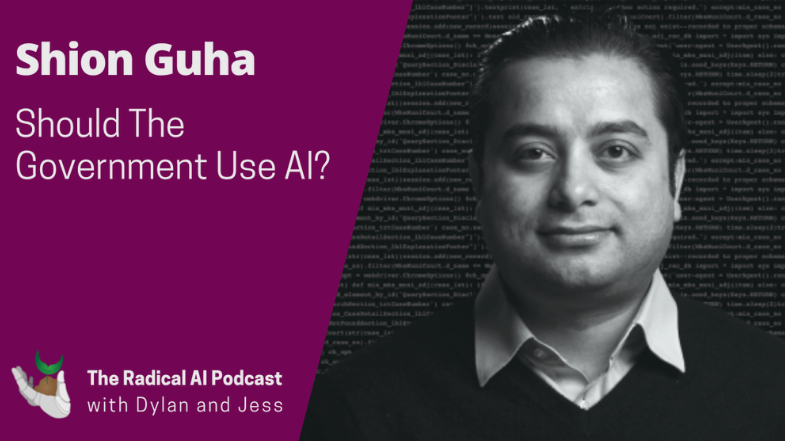
ΑΙhub.org
Radical AI podcast: featuring Shion Guha

Hosted by Dylan Doyle-Burke and Jessie J Smith, Radical AI is a podcast featuring the voices of the future in the field of artificial intelligence ethics. In this episode Jess and Dylan chat to Shion Guha about the government and AI.
Should the government use AI?
How does the government use algorithms? How do algorithms impact social services, policing, and other social services? And where does Silicon Valley fit in?
In this episode we interview Shion Guha about how governments adopt algorithms to enforce public policy. Shion is an Assistant Professor in the Faculty of Information at University of Toronto. His research fits into the field of Human-Centered Data Science, which he helped develop. Shion explores the intersection between AI and public policy by researching algorithmic decision-making in public services such as criminal justice, child welfare, and healthcare.
Follow Shion on Twitter @GuhaShion.
If you enjoyed this episode please make sure to subscribe, submit a rating and review, and connect with us on twitter at @radicalaipod.
Full show notes for this episode can be found at Radical AI.
Listen to the episode below:
About Radical AI:
Hosted by Dylan Doyle-Burke, a PhD student at the University of Denver, and Jessie J Smith, a PhD student at the University of Colorado Boulder, Radical AI is a podcast featuring the voices of the future in the field of Artificial Intelligence Ethics.
Radical AI lifts up people, ideas, and stories that represent the cutting edge in AI, philosophy, and machine learning. In a world where platforms far too often feature the status quo and the usual suspects, Radical AI is a breath of fresh air whose mission is “To create an engaging, professional, educational and accessible platform centering marginalized or otherwise radical voices in industry and the academy for dialogue, collaboration, and debate to co-create the field of Artificial Intelligence Ethics.”
Through interviews with rising stars and experts in the field we boldly engage with the topics that are transforming our world like bias, discrimination, identity, accessibility, privacy, and issues of morality.
To find more information regarding the project, including podcast episode transcripts and show notes, please visit Radical AI.









